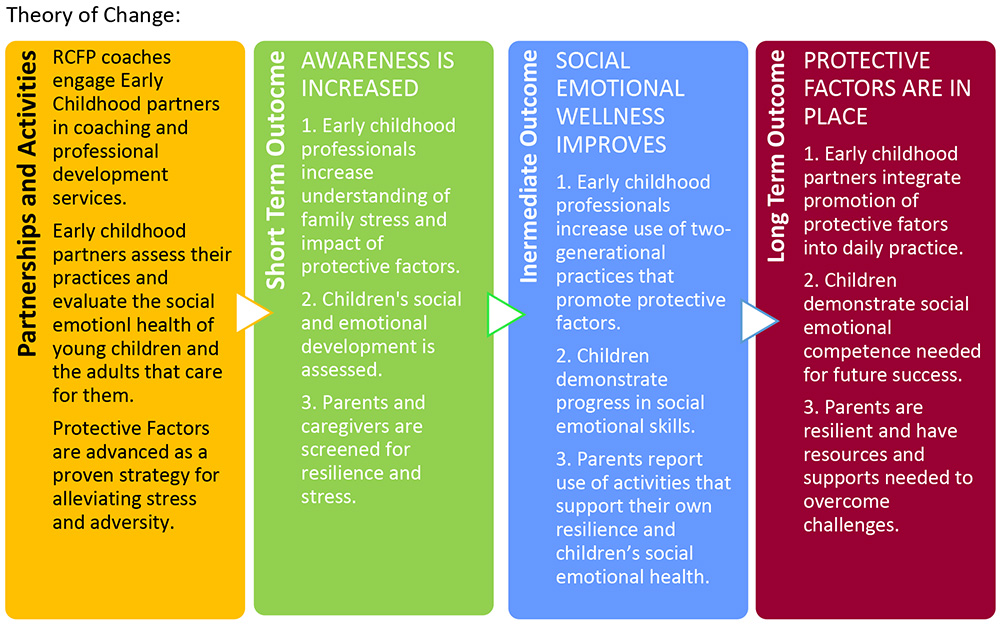
OUTCOMES AND RESULTS
Theory of Change and RCFP Results
It is the premise of RCFP that we develop pathways to child and family well-being by promoting Protective Factors. Through the implementation of strength-based strategies, organizations support and nurture Protective Factors for families. This practice results in resilient and responsive parents/caregivers who are able to lessen the negative impact of childhood stress and support the development and early learning of their young children.

RCFP has a proven record of positive results for professionals, children, and parents. Highlights of these results include:
Early Childhood Professionals:
- 90% report increased knowledge of protective factors and use of family and child-centered practices that promote resilience and social emotional wellness.
- 85% report increased confidence in addressing children’s social and emotional needs
- 85% report increased comfort in engaging parents
Children:
- 90% demonstrate age appropriate social emotional development
- 59% of children assessed in the “area of need” category demonstrated improved social emotional skills by the end of the program year
Parents:
- 64% of parents report resiliency behaviors
- 88% of parents report being more attentive to the needs of their children as they reported frequent use of practices that promote children’s social emotional development.


CRYC is action-oriented and hyper focused on building structures and practices to increase social emotional competencies for children, families, and providers. CRYC has helped to build awareness of the impact of stress and early childhood adversity. Their multigenerational approach has been extremely influential in our region as it offers solutions and new ways of building relationships with kids and families based on a deeper understanding of resilience and social emotional wellness.